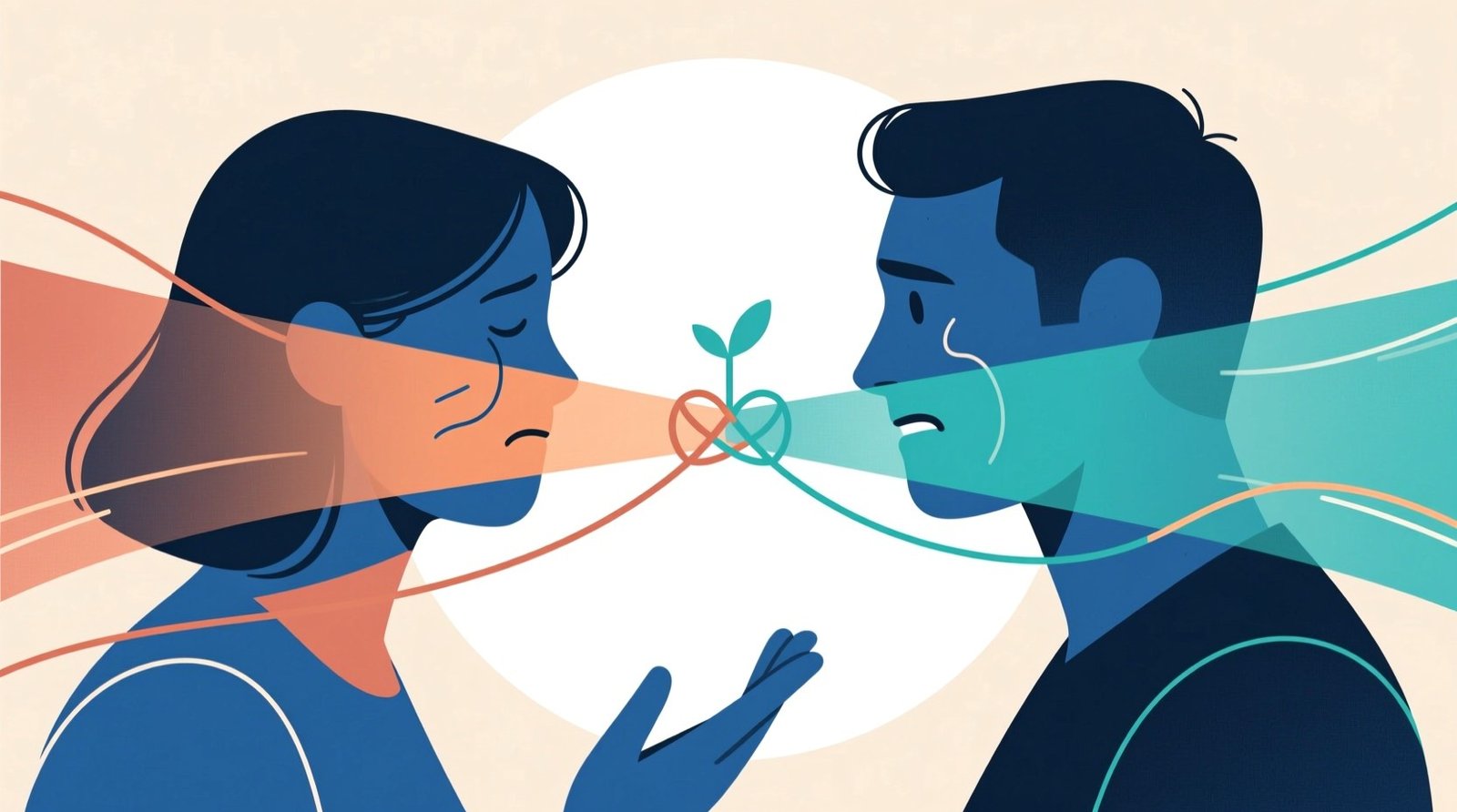Maintaining kindness in a relationship, especially when you’re upset, can be challenging yet essential for a healthy partnership. Here, we’ll explore actionable steps to help you remain kind and nurturing, even during conflict. This guide is designed to be comprehensive and practical, ensuring you have the tools needed to foster a loving and respectful relationship.
Why Kindness Matters in Conflict
Conflict is inevitable in any relationship, but how you handle it can either strengthen or weaken your bond. Kindness serves as a foundation for constructive dialogue and conflict resolution. It helps in:
- Reducing stress and tension: Kindness can diffuse anger and frustration, making it easier to address the root cause of the conflict.
- Fostering understanding and empathy: Being kind encourages you to see things from your partner’s perspective.
- Building trust and respect: Consistently kind behavior reinforces your commitment to the relationship.
Steps to Being Kind When Upset
1. Take a Pause and Breathe
Keyword: Managing anger in relationships
When emotions run high, it’s easy to react impulsively. Instead, take a moment to breathe deeply. This pause allows you to collect your thoughts and approach the situation more calmly.
Techniques for Taking a Pause
- Deep Breathing Exercises: Inhale deeply for four seconds, hold for four seconds, then exhale for four seconds. Repeat until you feel calmer.
- Mindfulness Practices: Focus on the present moment without judgment. Notice your feelings but don’t act on them immediately.
2. Use “I” Statements
Keyword: Communication in conflict
Instead of blaming your partner, express how you feel using “I” statements. This approach minimizes defensiveness and opens the door for constructive dialogue.
Examples of “I” Statements
- Instead of: “You never listen to me.”
- Try: “I feel unheard when you interrupt me.”
Benefits of “I” Statements
- Promotes empathy and understanding
- Reduces defensive reactions
- Encourages open communication
3. Listen Actively
Keyword: Empathy in relationships
Listening actively shows your partner that you value their perspective. It involves giving them your full attention, nodding, and paraphrasing what they’ve said to ensure understanding.
Steps to Active Listening
- Focus Fully on Your Partner: Put away distractions like phones or TV.
- Show That You’re Listening: Use verbal and non-verbal cues like nodding and maintaining eye contact.
- Reflect and Paraphrase: Repeat back what you’ve heard in your own words to confirm understanding.
Comparison of Communication Techniques
| Technique | Description | Benefits |
|---|---|---|
| “I” Statements | Express feelings without blaming | Reduces defensiveness, encourages empathy |
| Active Listening | Fully focus, understand, and respond to your partner | Builds trust, enhances understanding |
| Mindful Pausing | Taking a moment to breathe and collect thoughts before reacting | Reduces impulsivity, promotes calm responses |
4. Practice Empathy
Keyword: Empathy in relationships
Empathy involves putting yourself in your partner’s shoes. Try to understand their feelings and motivations, even if you don’t agree with them.
Ways to Cultivate Empathy
- Ask Questions: “Can you tell me more about why you feel this way?”
- Validate Their Feelings: “I understand that this situation is upsetting for you.”
- Avoid Judgment: Focus on understanding rather than evaluating their feelings.
5. Find Common Ground
Keyword: Relationship conflict resolution
Seek solutions that satisfy both parties. Finding common ground can transform a conflict into an opportunity for growth.
Steps to Finding Common Ground
- Identify Shared Goals: Focus on what both of you want to achieve.
- Compromise: Be willing to give and take to reach a mutually beneficial solution.
- Collaborate on Solutions: Work together to find creative ways to resolve the issue.
FAQs
Q: How can I stay calm during an argument?
- A: Practice deep breathing, take breaks if needed, and focus on listening rather than reacting immediately.
Q: What if my partner isn’t willing to communicate?
- A: Encourage open dialogue by being a good listener and expressing your willingness to understand their perspective. If needed, suggest seeking couples therapy.
Q: How can I practice empathy if I’m very upset?
- A: Take a moment to calm down before attempting to empathize. Remind yourself that understanding your partner’s feelings doesn’t mean you have to agree with them.
Q: Is it okay to take a break during an argument?
- A: Yes, taking a short break can help both partners calm down and approach the discussion with a clearer mindset.
Q: How can I improve my active listening skills?
- A: Practice focusing fully on your partner, use reflective listening, and avoid interrupting when they speak.
Conclusion
Being kind when you’re upset with your partner isn’t always easy, but it’s crucial for maintaining a healthy and loving relationship. By incorporating these strategies, you can handle conflicts more effectively, build stronger connections, and foster a more understanding and empathetic partnership. Remember, kindness is a powerful tool that can transform the way you and your partner navigate challenges together.






